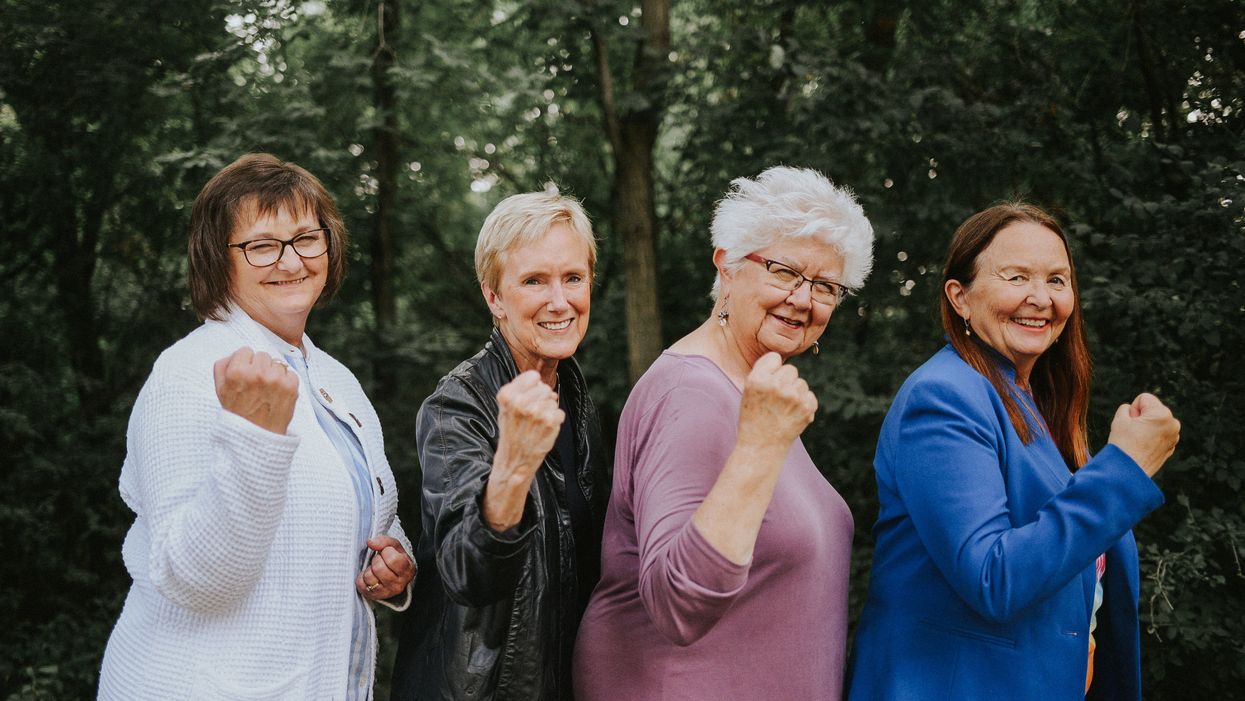Chaffee is a founder of North Dakotans for Public Integrity, which works to promote integrity and accountability in government, and of the BadAss Grandmas, who encourage boomer women to engage with the democracy movement. She is a university governance consultant.
Voters shocked the entrenched North Dakota political system last November by approving a new article in the state constitution with three strong anti-corruption policies. Article XIV reveals who is spending money to influence voters, prohibits gifts and other undue influence on public officials and establishes an ethics commission.
The Republican Party, with support from an estimated 76 percent of adults, has held a super-majority in the Legislature and all statewide elected offices for years. The powerful state chamber of commerce never thought Measure 1 would pass.
Big business led a fierce, often dishonest opposition campaign. A mainstream faith denomination vigorously opposed the measure. It seemed obvious that the people who elected those officials, and received this apparently credible messaging, would side with the status quo.
The proponents, newly formed North Dakotans for Public Integrity, started with four retired friends discussing over coffee the increasing corruption associated with our state's oil boom. Adding a few key people for expertise and diversity, we met every Tuesday morning for more than a year, wrote the ballot initiative, partnered with four national democracy organizations — and got a world-class education in political activism. We had only skeleton staff because most in-state major donors are with the super-majority and others felt hopeless. The opposing coalition funded its campaign in six weeks with just 19 checks, outspending us by 20 percent.
Yet we won with 53.6 percent of the vote. What does this say about democracy reform? Here are eight takeaways.
Democracy matters. Think of democracy as a game with rules, goals, coaches, referees, players and fans. The game is complicated, involving redistricting, voting rights, election systems, campaign finance, lobbying, conflict of interest, transparency, accountability, enforcement, government ethics and more. Over time, winning players — wealthy special interests — have revised the rules and befriended the officials to their own advantage. They are gaining ever more power and leaving the rest of us further and further behind. It's time for the scrappy underdogs to stake a claim.
The time is right. Regardless of party, voters are demanding honest government. Clearly, thousands of majority-party members in North Dakota voted their values against the wishes of their party. It is the worst and best of times. At the very moment when democracy is threatened as never before, support for democracy is at historic heights. You've been wanting to do something? Go!
Democracy has many more votes than voices. Democracy reforms are common-sensical. "Of course, we should have an ethics commission — don't we already?" "I had no idea legislators get to draw their own districts!" When people who hate corruption understand that democracy is threatened, they choose democracy over party. Don't be discouraged. You are not alone.
Retirees are a rich source of time, talent and treasure for reform. Nearly all the leading players and many of the volunteers in this story are 65-80 years old. Some of us fought for peace and racial justice in the 1960s or the Equal Rights Amendment in the '70s. Today, we don't see the democracy that we were reared to believe in. We feel betrayed. We aim to leave a meaningful legacy for future generations.
Make it safe for people to vote their values. One-party domination can create fear of financial or social retaliation for those who happen to disagree with that party on a given issue. Encouraging those who favor change to network privately with their friends can help them realize they are not alone and embolden those who are considering voting "wrong."
Take the high road. Be authentic. Nonpartisan political work is not "politics." It brings people together for the common good, and there's no need to be nasty about it. Although our group could have outed many unethical politicians, our emphasis instead was common-sense accountability. Inspired and christened by a teen grandchild, three of us campaigned as BadAss Grandmas, roaming the state in search of the best homemade caramel rolls and sausages. What a refreshing change for us as well as voters. We practiced politics, home-style.
Give the people what they want. Best practice might have been to travel, engage and listen to people throughout the state long before campaign season, but we had neither time nor resources. Instead, we wrote a 19-page first draft of our ballot measure with at least a dozen reforms. A poll found high support for many of them, so we chose the top three, rewrote and ran with it. However you may get there, and however it may or may not square with your own priorities, giving the people what they want is a darn good starting point for success.
You can do this. Help is available. No experience? No problem. If we had known in advance what it would take, we may never have started. There's no question we were phenomenally fortunate to get the help we needed. But if it hadn't worked out this way, we'd have kept trying. Philanthropic and organizational support for democracy reform is the highest it has ever been.
We are all tired of hostility and fear. We want to work for something. More than 80 percent of Americans are for pro-democracy policies. We want to work together for better times. You'll make surprising new friends, feel renewed commitment when disappointed, and wildly celebrate even the smallest gain.
Make it fun. Serious fun.
Find a friend. Join a group. Make a donation. Raise your hand. Get in the game.



















